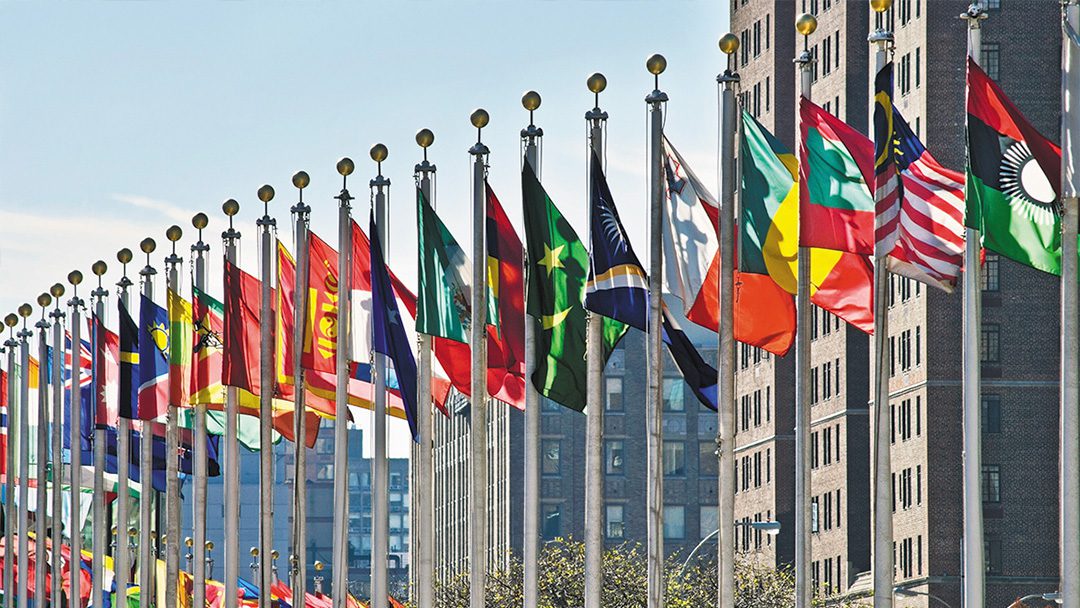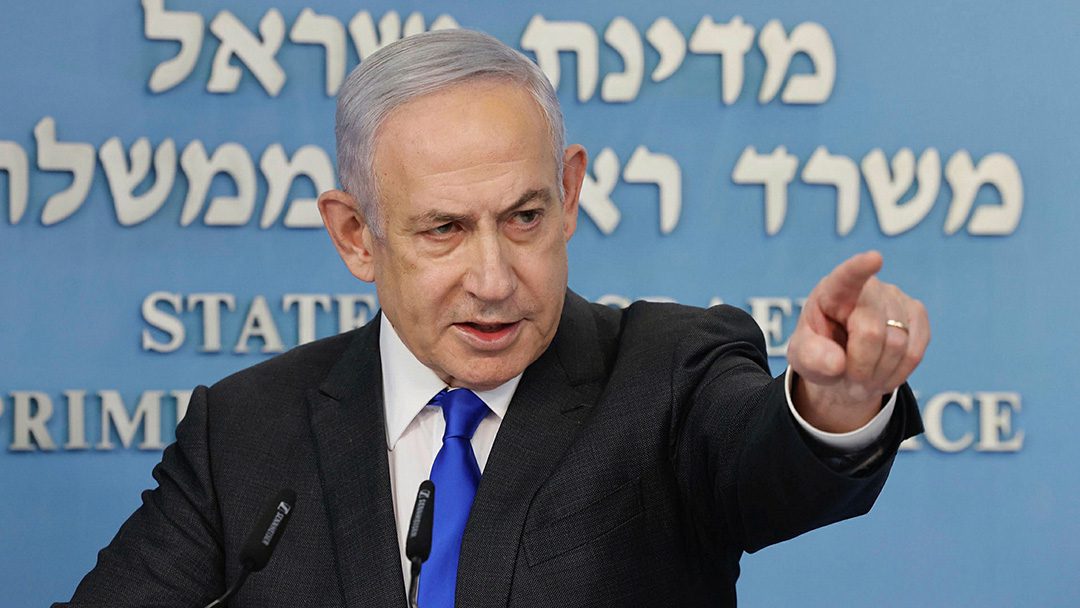Last year, I had the opportunity to converse with a prominent Israeli civil servant, during which I expressed my aspirations for my academic career to serve Israel’s public image amid a challenging international landscape. The response I received was one of well-founded pride and confidence: “Israel needs no help.” However, recent developments in the Middle East have starkly contradicted this assertion. As Israel finds itself embroiled in its most significant battle to date since becoming a state, both on the ground in Gaza and in the court of international opinion, the need for support, particularly from the Christian community, has never been more critical.
Prominent figures within Israeli politics, official government spokespeople, Jewish lawyers, and activists are actively engaged in shaping and defending Israel’s public image. Notable examples include Hillel Neuer, the Executive Director of United Nations Watch, a human rights organisation, and Eylon Levy, an official Israeli government spokesman.
Hillel recently presented a comprehensive dossier to both the United States Congress and the United Nations (UN) that outlined the extent of involvement of employees of the United Nations Relief and Works Agency for Palestine Refugees in the Near East (UNWRA) in the October 7 attack. Furthermore, the dossier ilustrated a disastrous pattern of neglect from the UN regarding claims that UNWRA employees have been involved in antisemitic and terrorist activities for over the past decade. Levy has taken a different approach, primarily utilising social media platforms and hosting an increasingly popular podcast featuring a diverse range of guests from celebrities, social media influencers and political commentators.
Furthermore, when world leaders or the UN call for investigations into Israel’s actions in the Gaza Strip, these inquiries are often led by Israeli officials. Subsequently, these findings are reported back to the Israeli government, who then disseminates the information.
Are the Israeli government and Jewish activitists effective in conducting these investigations or combating negative public perception? Undoubtedly. Yet, therein lies a significant dilemma. My assessment highlights the significant challenge of Israelis spearheading efforts to counter false narratives and combat negative public opinion—the fact that they are Israeli themselves.
At the onset of this conflict, global powers widely supported Israel’s campaign against Hamas terrorists. However, as the conflict persists and Hamas continues its notorious tactics of employing human shields and falsifying data, condemnation against Israel has intensified. This shift has transformed Israel’s staunchest allies into cautious critics. Now, with Jewish voices becoming increasingly marginalised or met with extreme skepticism, the importance of non-Jewish perspectives has become paramount.
Geographical distance poses a challenge to direct involvement, but there are avenues through which support can be extended. Whether through financial aid, participation in rallies and meetings, or simply raising awareness on social media platforms picturing the Israeli flag and relevant hashtags. However, these efforts, while commendable, unfortunately fall short. It is imperative for Christians to equip themselves to move beyond symbolic gestures and actively engage in the challenge that shapes people’s perceptions.
This conflict transcends conventional warfare; it is increasingly fought on the battleground of public opinion and in the hearts and minds of civil society. Unlike past conflicts such as the Second Intifada or the Gaza Wars, which garnered significant—yet limited— international attention, the current situation has captured both the world’s gaze and the world’s condemnation. Therefore, the strategic approach of Christians must adapt to this new reality, placing greater emphasis on this era of information warfare and the dissemination of inaccurate narratives that seek to delegitmise and dehumanise the state of Israel.
Merely citing a limited number of biblical scripture as the rationale for supporting Israel is no longer sufficient. Instead, our responses should be grounded in a basic comprehension of historical context, political dynamics, and a solidly rooted theological framework. These elements collectively affirm and reinforce our unwavering support for the Jewish state and its people as well the knowledge to expand our bases for interaction and conversation—even with the harshest of critics.
No, you don’t need a formal degree in history, politics, international relations or law, but you can learn the simple tools of research. For example, triangulation is the practice of employing diverse methods or data sources in research to achieve a thorough comprehension of an occurrence. It serves as a means to verify the validity of data by corroborating information from various origins. In plainer terms, it means getting your information from multiple credible sources to confirm an occurrence. This has never been more important to do with a multitude of people getting their information from single sound bytes from Tik Toks or reels via social media.
Firstly, you can become more efficient at sifting through emerging information from the conflict zone to become more acquainted with the prevailing narratives and how to effectively challenge them. Stories have circulated about alleged bombings by the Israeli Defence Force (IDF) targeting hospitals, denying access to fuel for generators, or obstructing the humanitarian aid corridor intended to deliver essential supplies to Palestinians. However, like these instances, the recent incident involving 104 Palestinians attempting to access a humanitarian aid convey in Northern Gaza who were supposedly ‘shot dead’ by IDF soldiers was swiftly debunked by cross-referencing information from multiple sources. By honing your fact-finding skills, you may surpass the proficiency of typical reporters from major media or newspaper outlets.
Secondly, you can deepen your understanding of Israel’s historical, legal, and political context to understand their legitimate claim to the land and their right to have a presence within it. Especially given Israel’s current legal and political challenges, including cases brought before the International Court of Justice, it is essential to gain an understanding of topics such as the allegations of ‘illegal occupation’, the construction of ‘illegal settlements’, or the legal status of Jerusalem. Broadly, a deeper understanding of Israel’s history, legal and political context enables us to engage in informed discourse and contribute constructively to discussions surrounding the Israeli-Palestinian conflict.
Thirdly, you can learn why Christians should stand with Israel from a biblical and theological perspective. Beyond the understanding that God made a covenant with Abraham, Isaac and Jacob, is a treasure trove of wealth behind our inclusion into the same covenant—as gentiles. The notion that our Christian faith has elements of ‘Hebrew root’s’ can no longer suffice as justification for our rationale for standing with Israel. It’s far deeper. Our entire faith is rooted within the Jewish faith. In the words of Paul in Romans 11:17-18, “But if some of the branches were broken off, and you, although a wild olive shoot, were grafted in among the others and now share in the nourishing root of the olive tree, do not be arrogant toward the branches. If you are, remember it is not you who support the root, but the root that supports you.” Our solidarity towards Israel, the land and its people, is rooted in more than just small reflections that we find in our faith with Judaism, it is the very foundation of our faith.
In the first area, you can utilise the internet to triangulate incoming information to ascertain the truth; in the second area, you can access resources from The Hague Initiative for International Cooperation (thinc) and in the third space, you can become members of the Torah Portion where you can begin understanding the Old Testament and how it links to Jesus as the Messiah.
In these three arenas, we can become effective communicators during this time of information-saturation and contesting narratives. While our geographical separation means we cannot all be physical hands and feets aiding Israel on the battlegrounds of Gaza, we can become adequately equipped to fight some battles in the most important battlefield right now, in the minds and hearts of people.
The Hague Initiative for International Cooperation: www.thinc-israel.org
The Torah Portion: www.thetorahportion.org












0 Comments